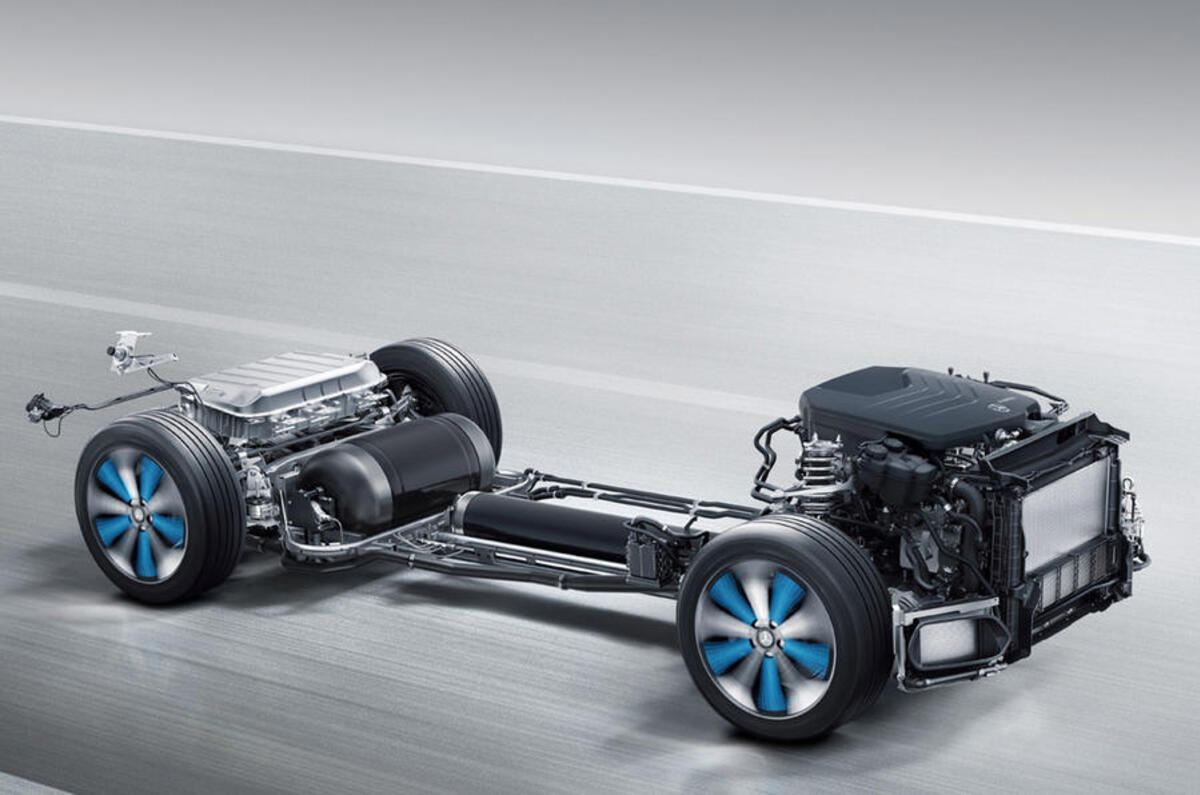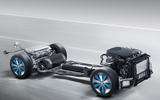Hydrogen fuel cell technology is an inviting avenue for Jaguar Land Rover to explore.
Not only have Toyota and Hyundai had some success in this field, but interest and funding from governments is also growing, plus there’s the fact that hydrogen especially suits large, heavy vehicles and work on miniaturising fuel cells and creating more viable storage solutions is progessing rapidly.
READ MORE: Jaguar Land Rover looks to hydrogen fuel cells for carbon-free future
You only have to drive a few miles in a Toyota Mirai, and to refuel it at one of Europe’s slowly growing collection of hydrogen stations, to see that managing a hydrogen fuel cell EV is easier than a battery EV and always will be from an owner’s point of view.
Best of all for JLR must be the prospect of not having to strap an 800kg battery to the bottom of a Range Rover that already weighs some 2500kg. Three-tonne-plus 4x4s might just turn the long-suffering motorist right off.
READ MORE
Jaguar Land Rover to invest £1bn in three new UK-built EVs












Join the debate
Add your comment
+1
Hydrogen has failed despite billions being spend on it by the biggest companies, along came Tesla and just 10 years later it became the most valuable car company in the world. It's a no brainer on the car front as it's to inefficient.
What is this?
3 paragraphs without any serious discussion of the topic?
Hydrogen is a massive red herring. Energy generation should be done centrally (renewables) to maximise economies of scales. Cars will just be batteries with electric motors.
Unbelievable
BEV critics constantly moan about lack of charge points. Do they think its easier or harder to install thousands of hydrogen fuel stations ?